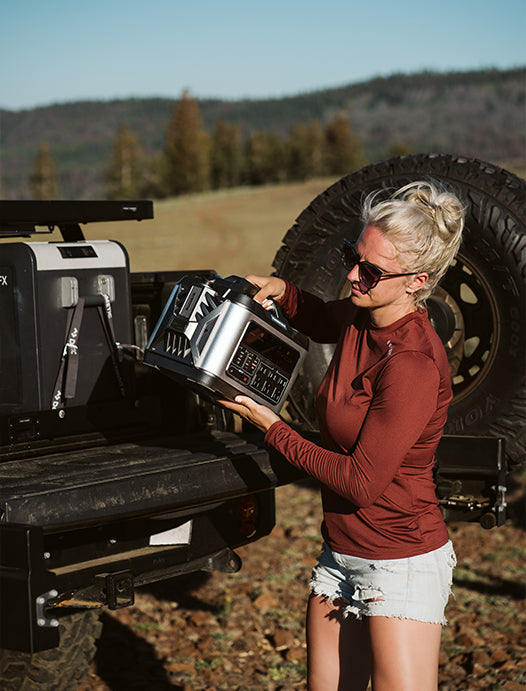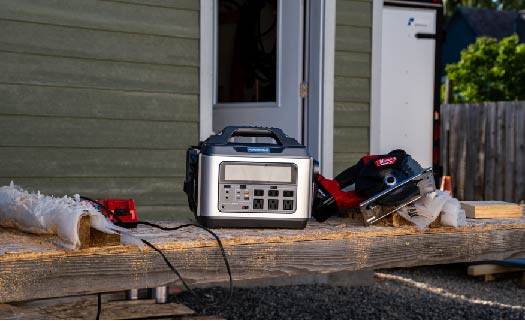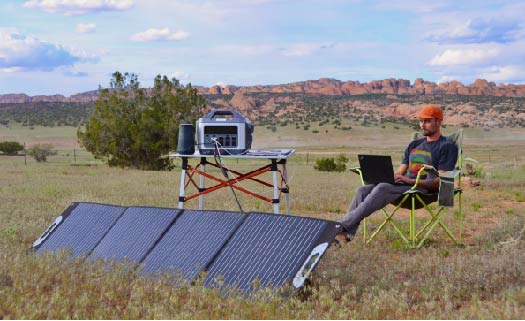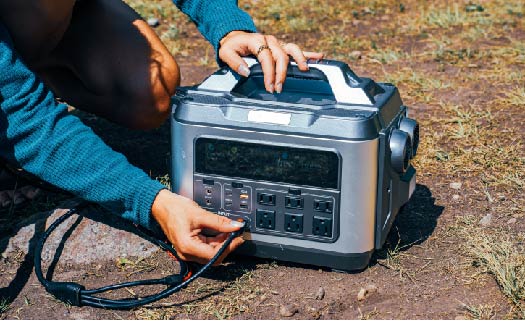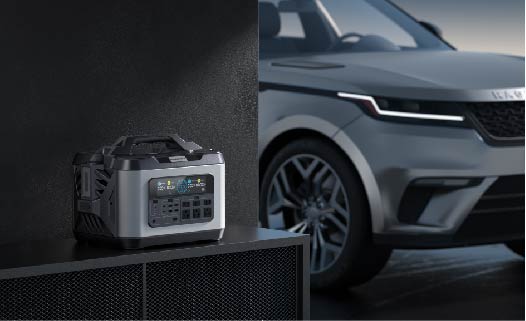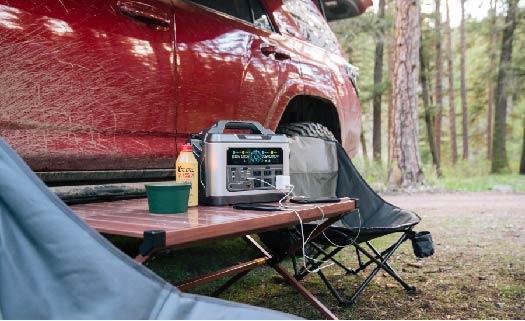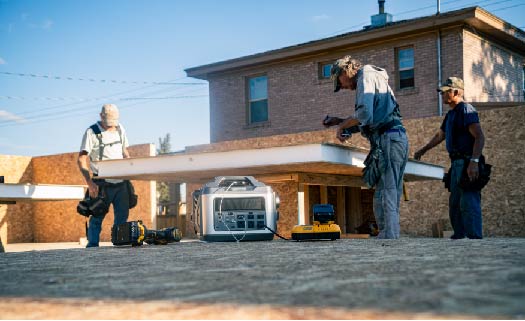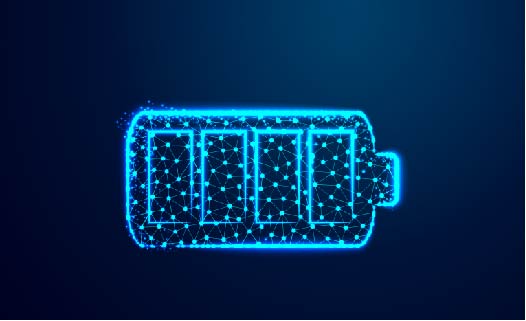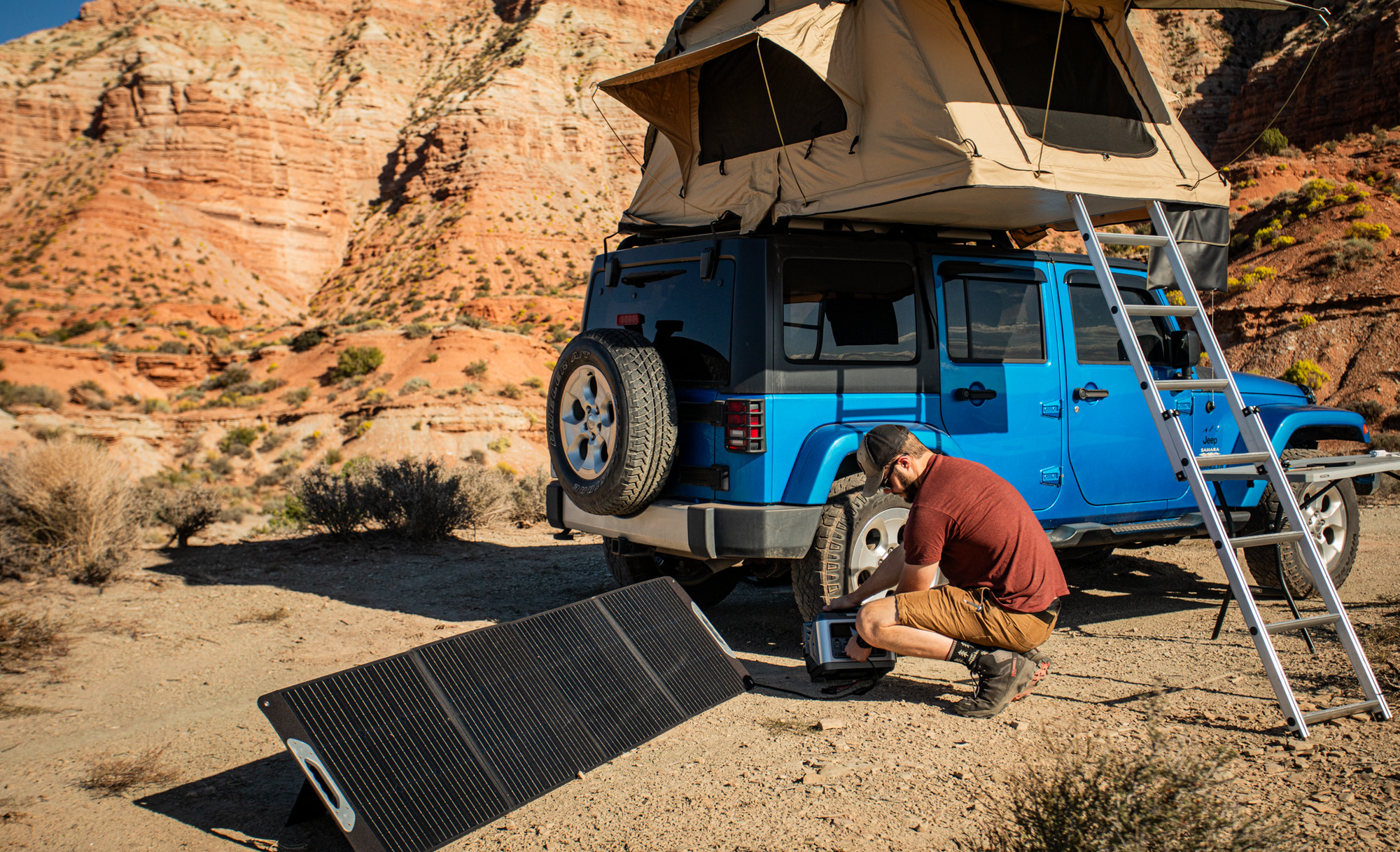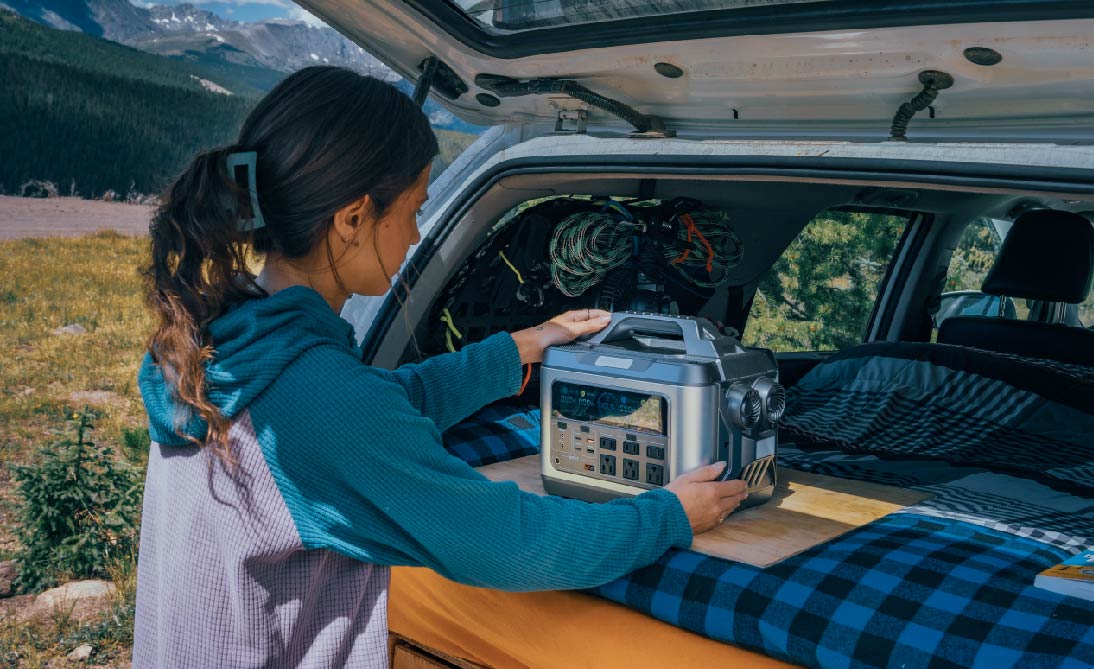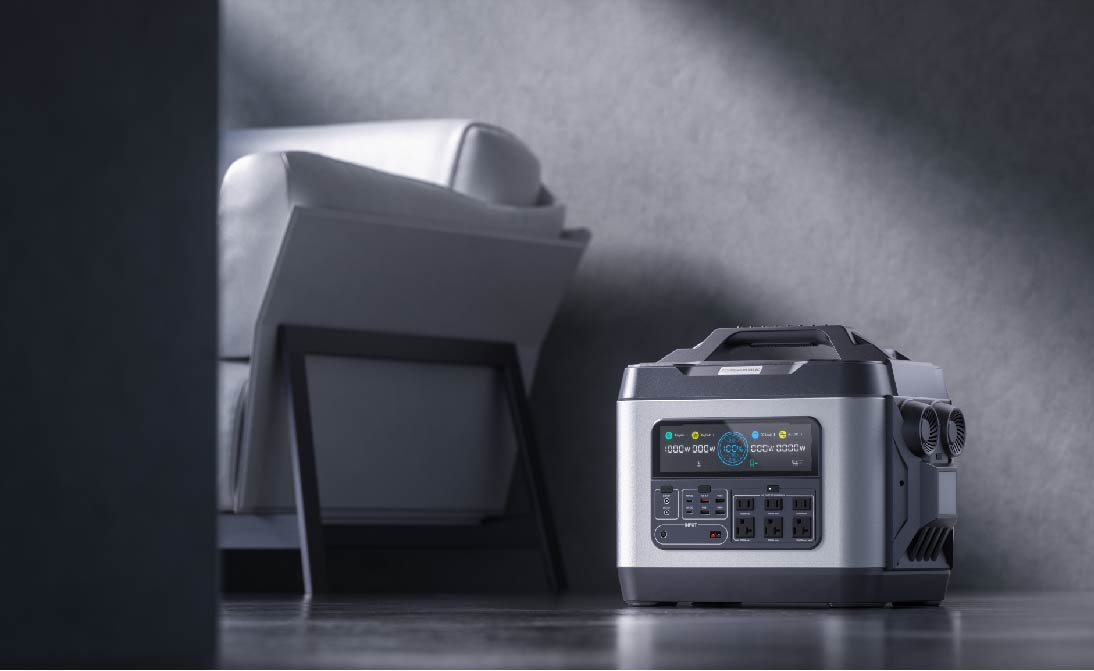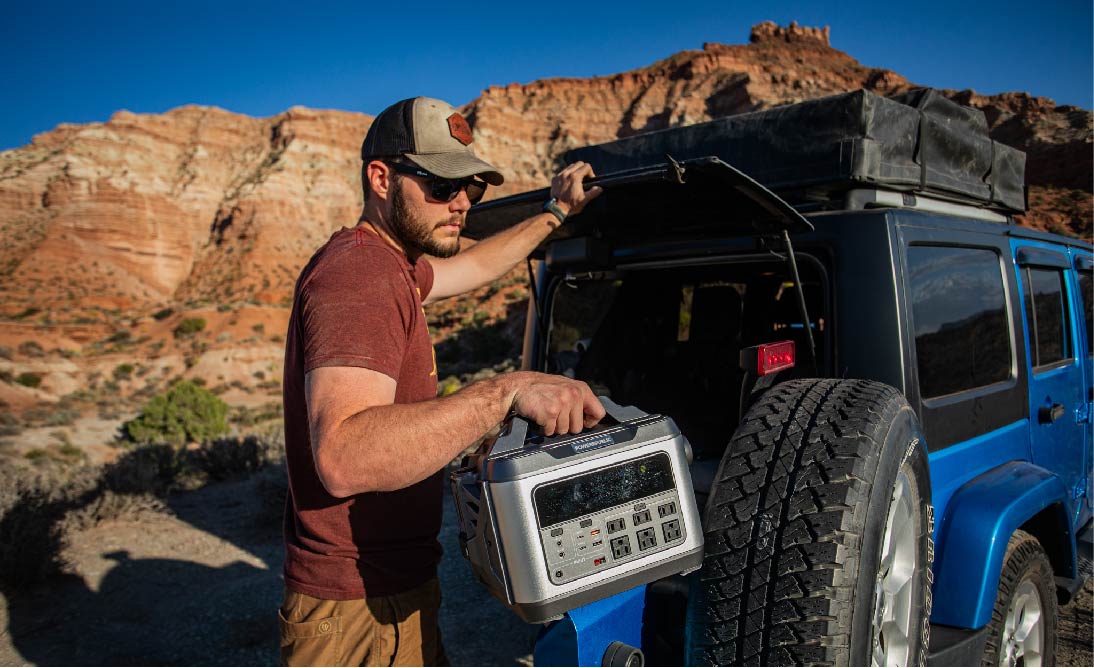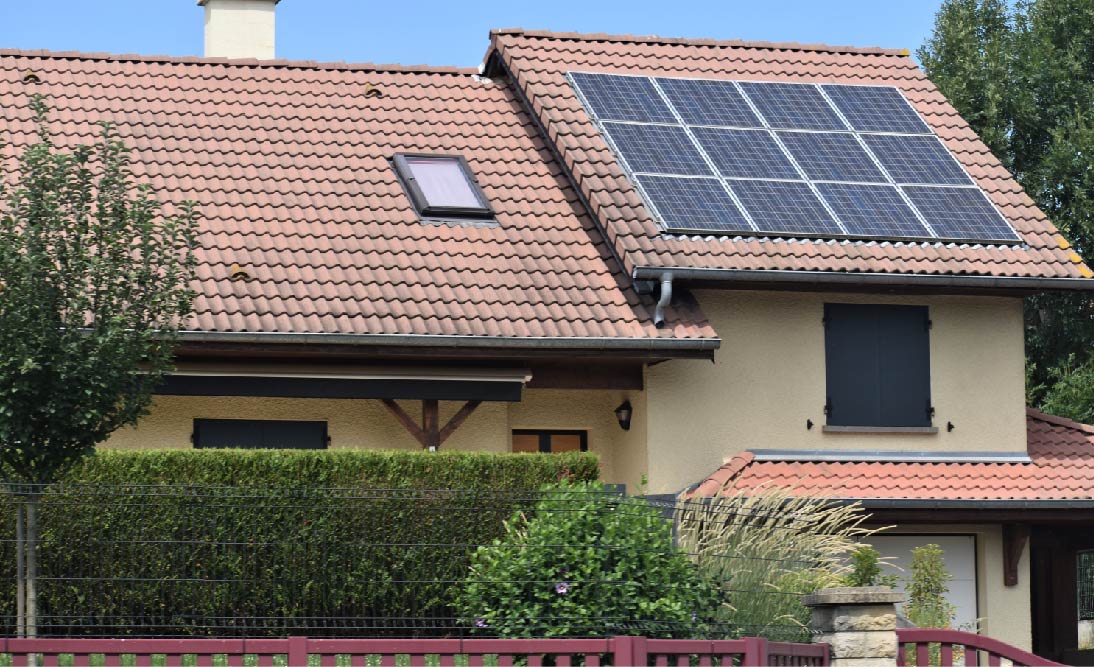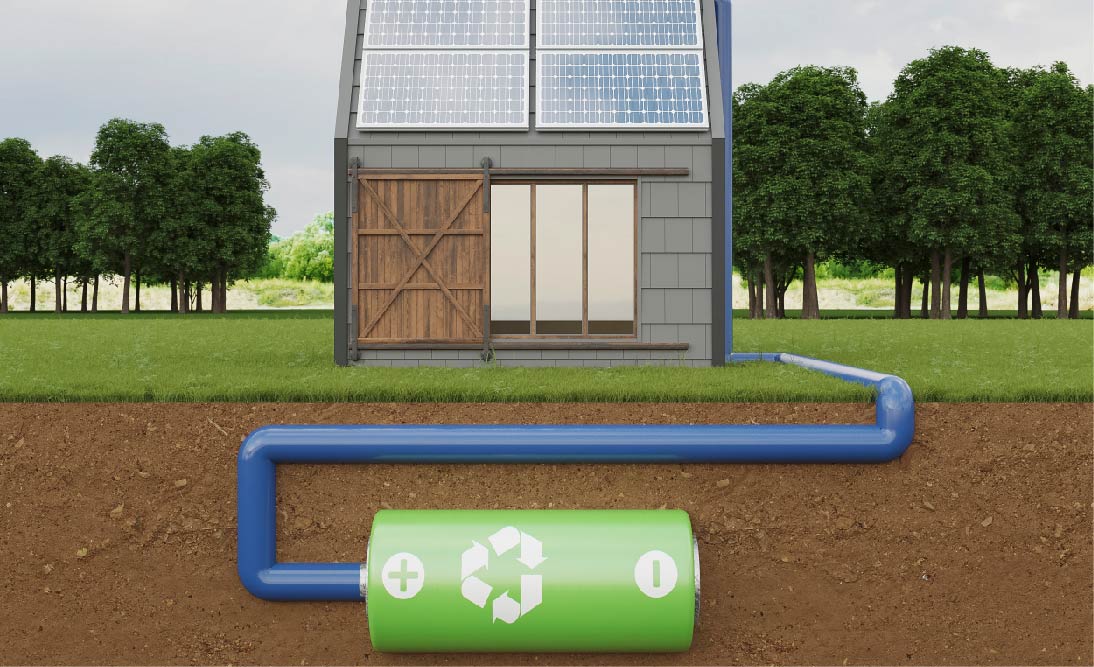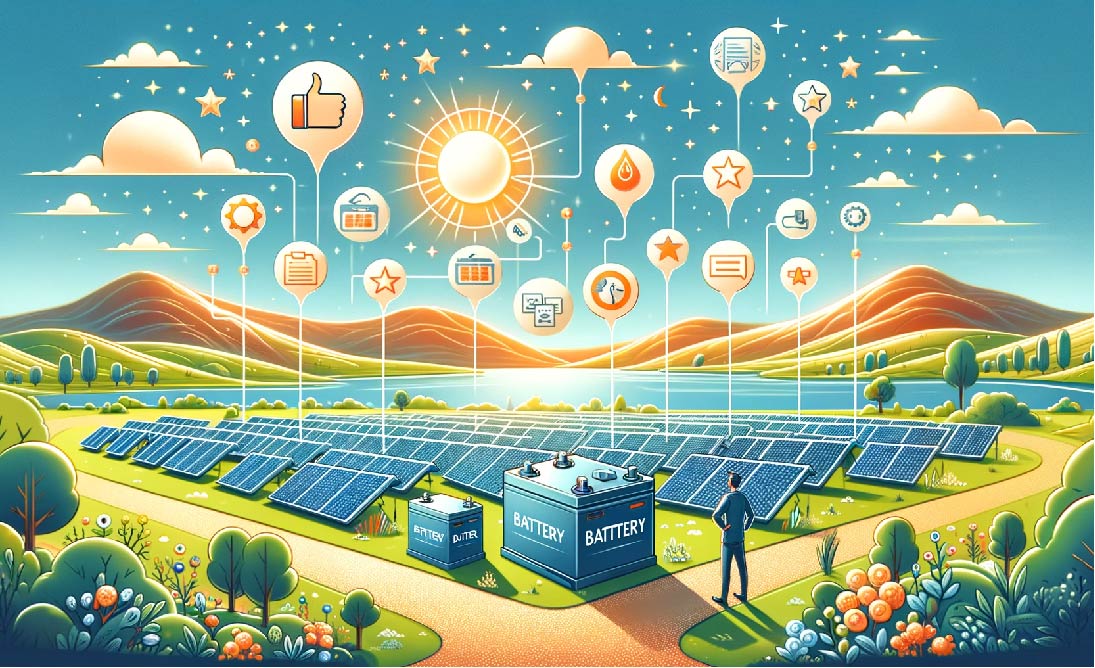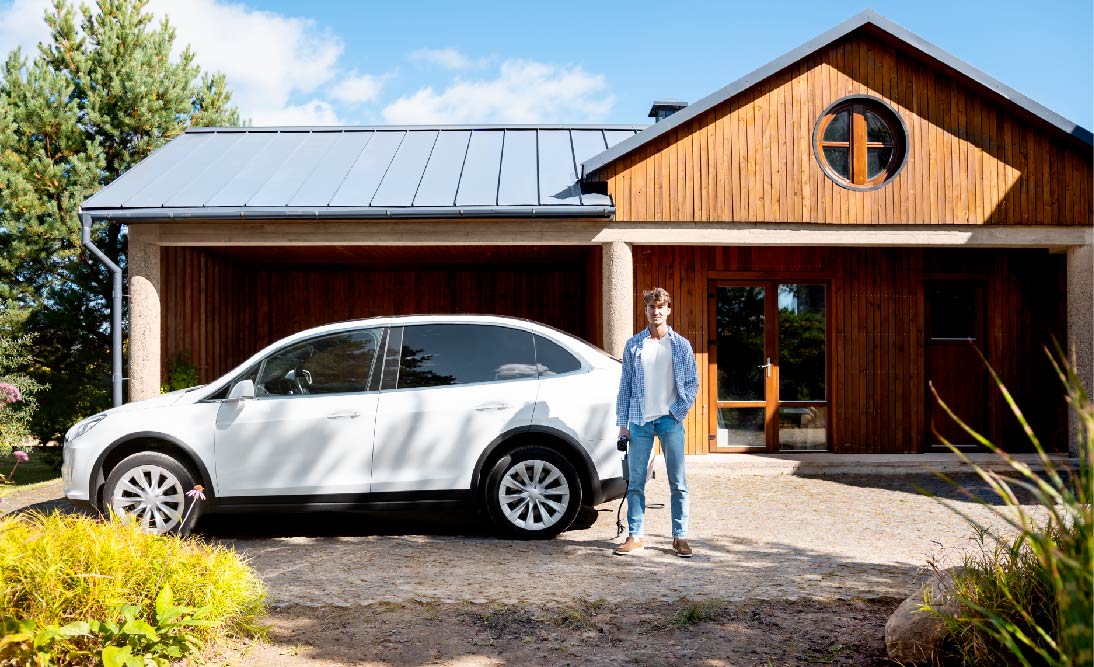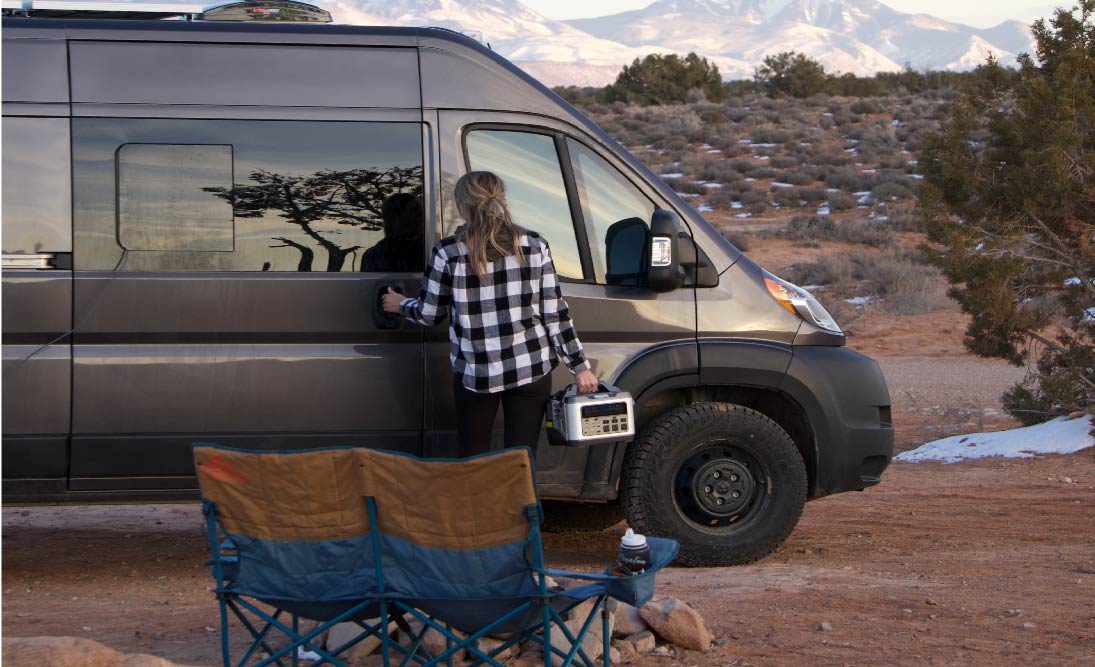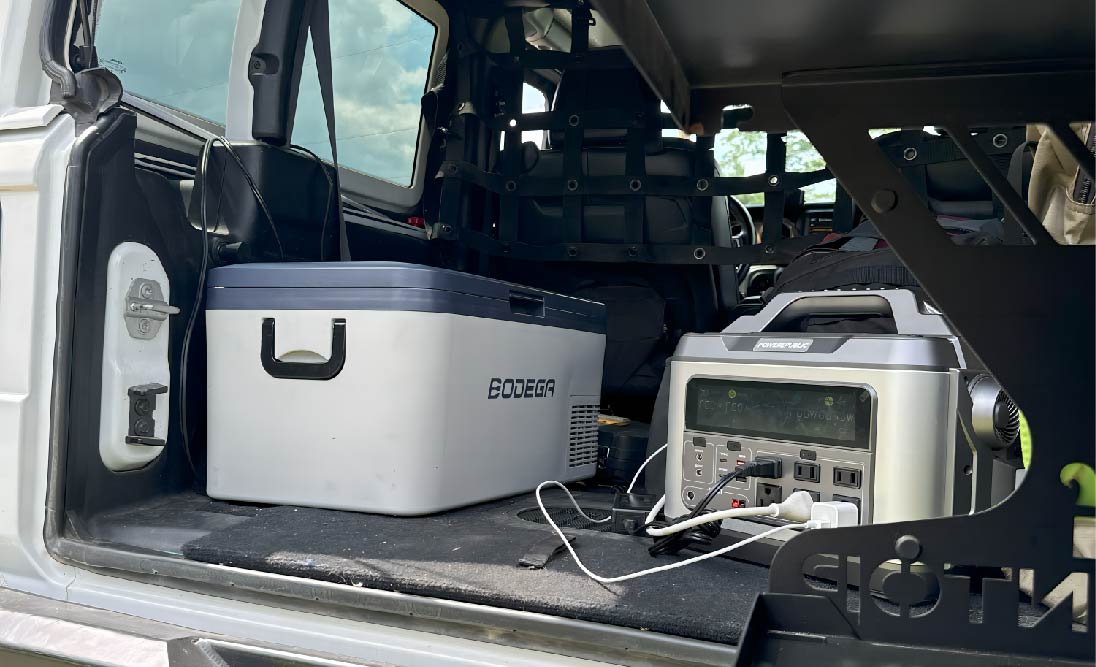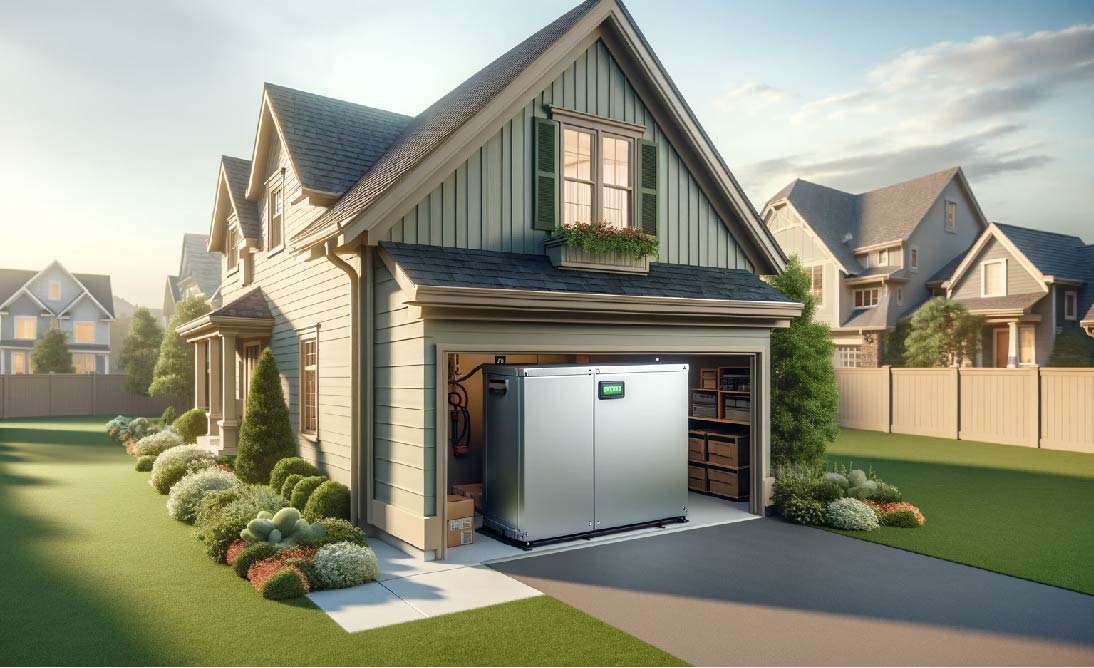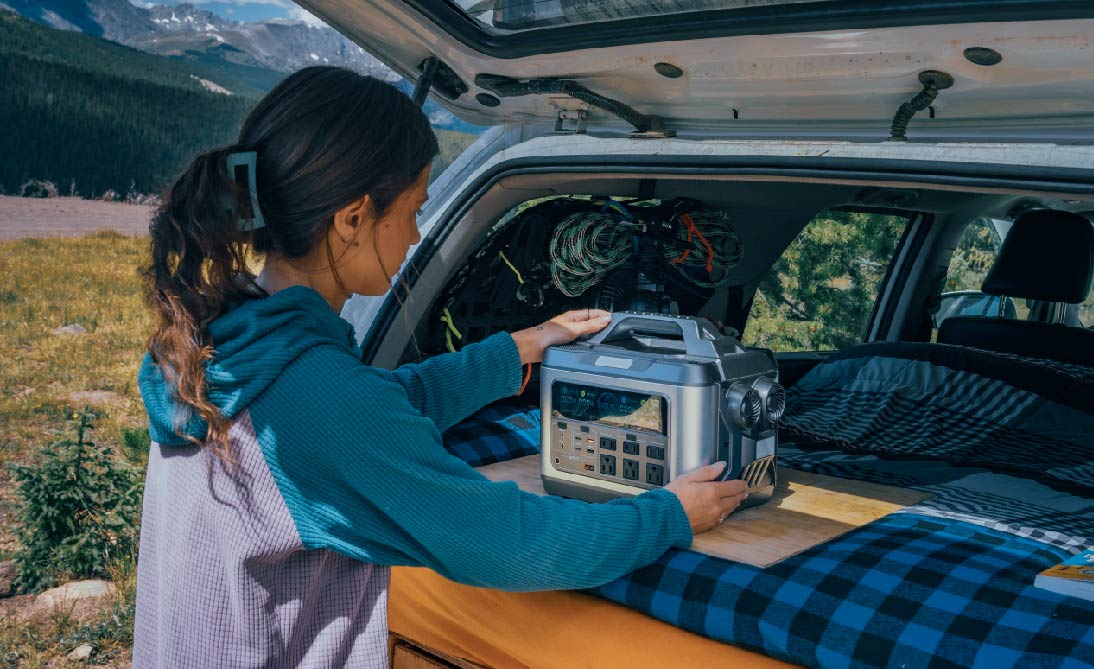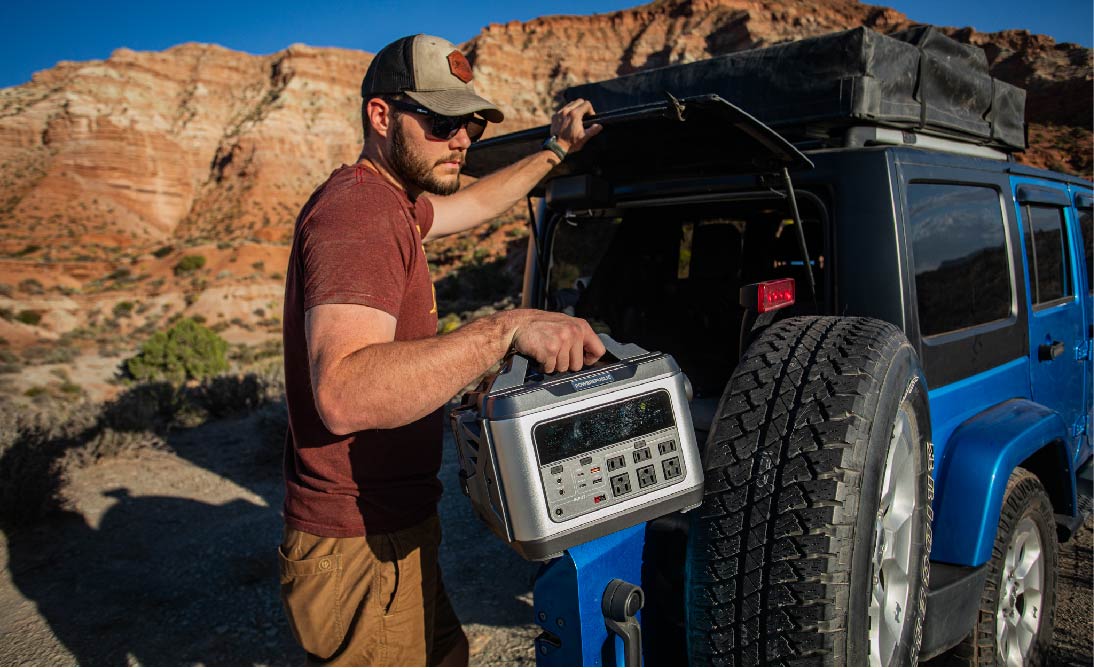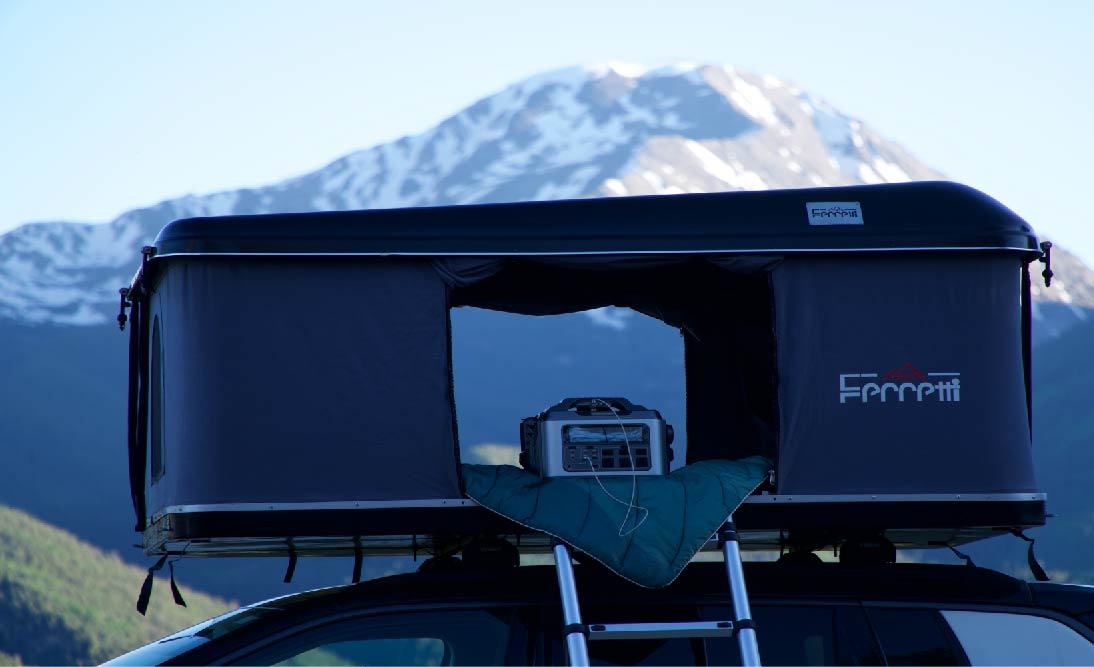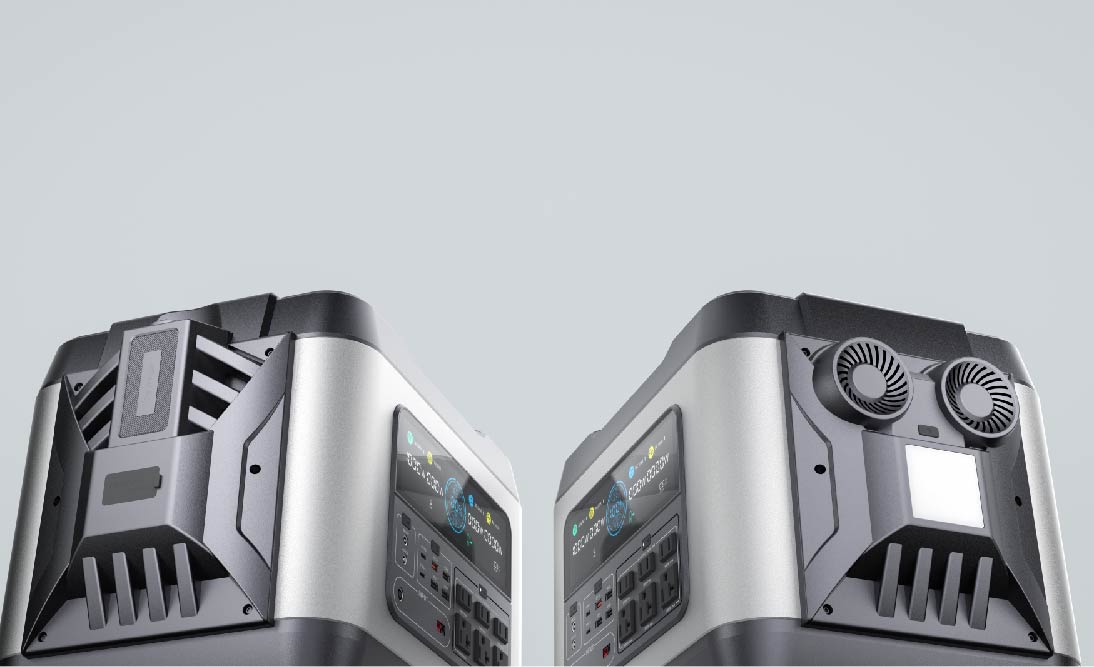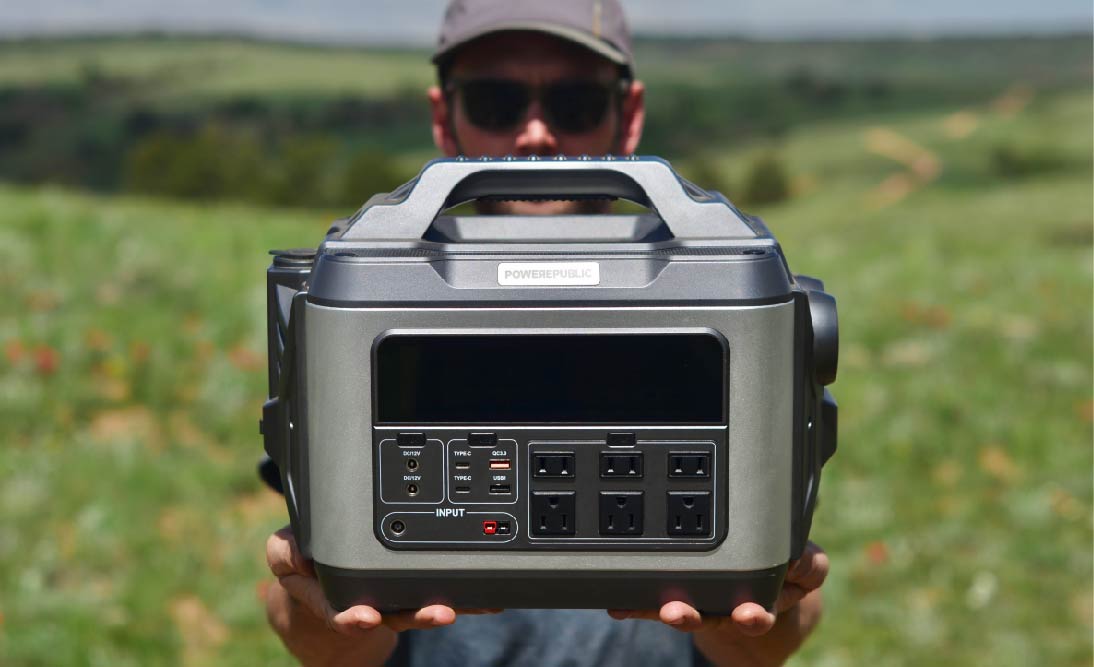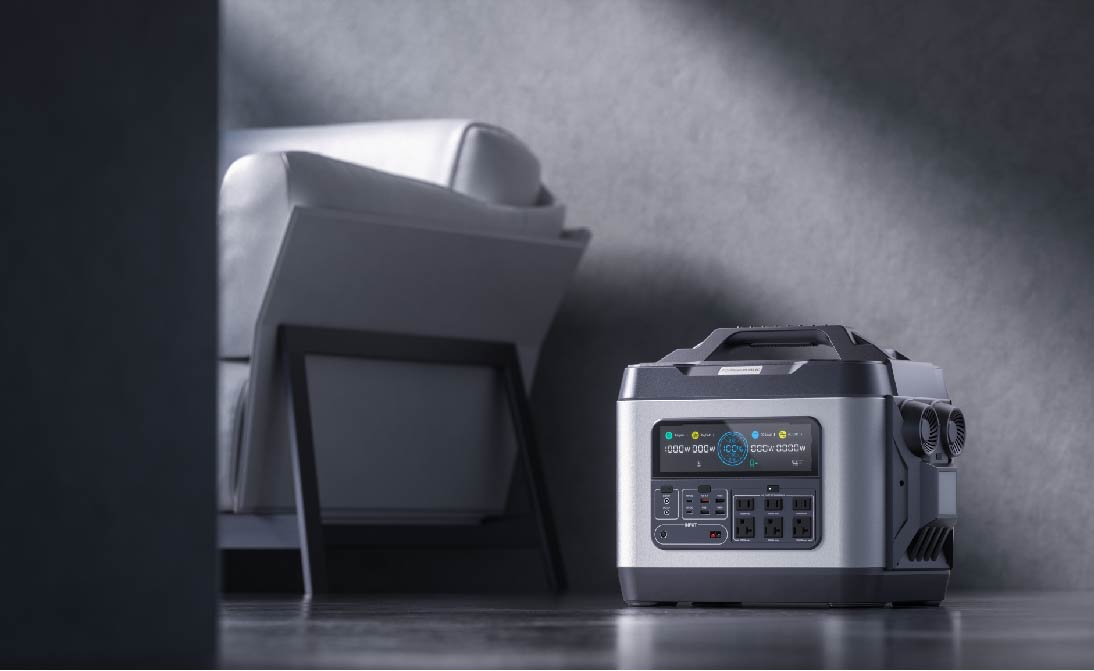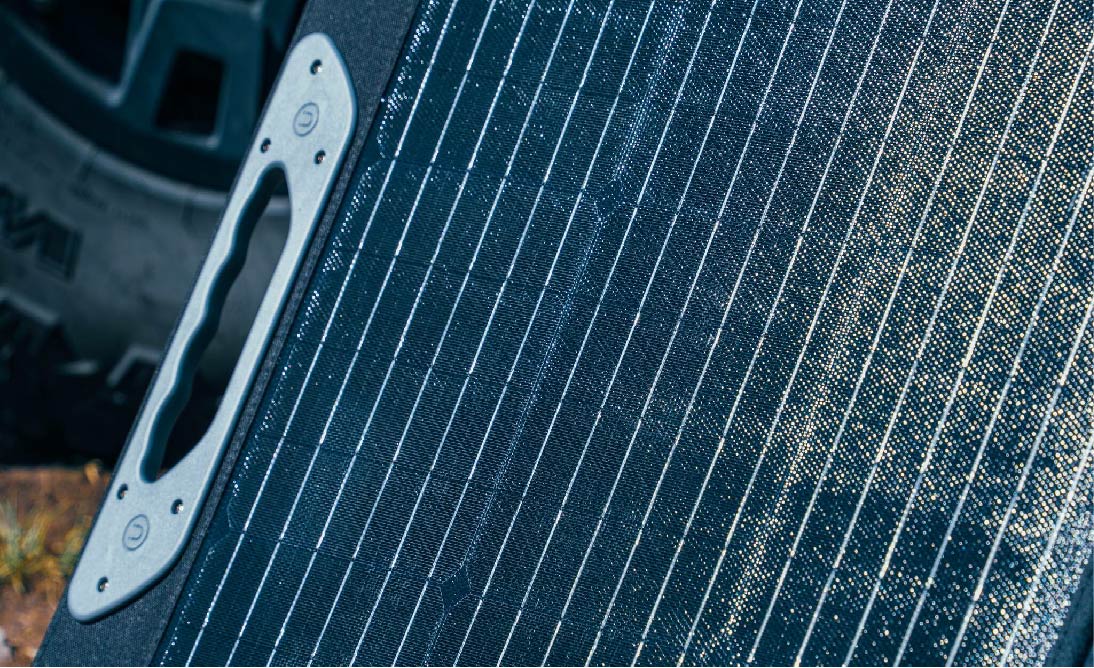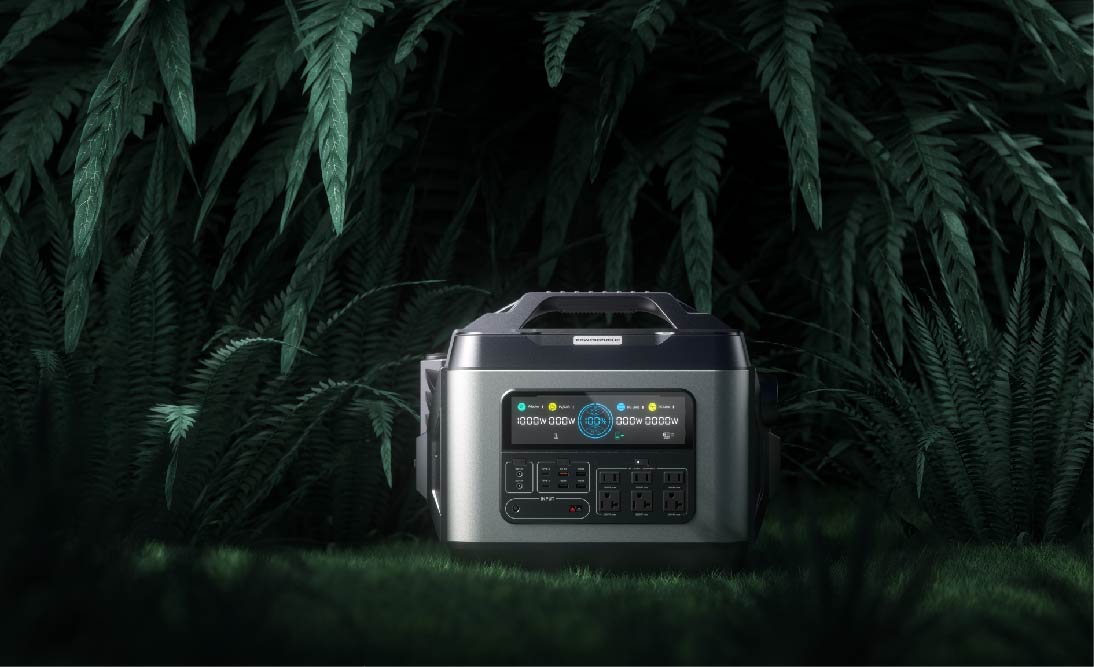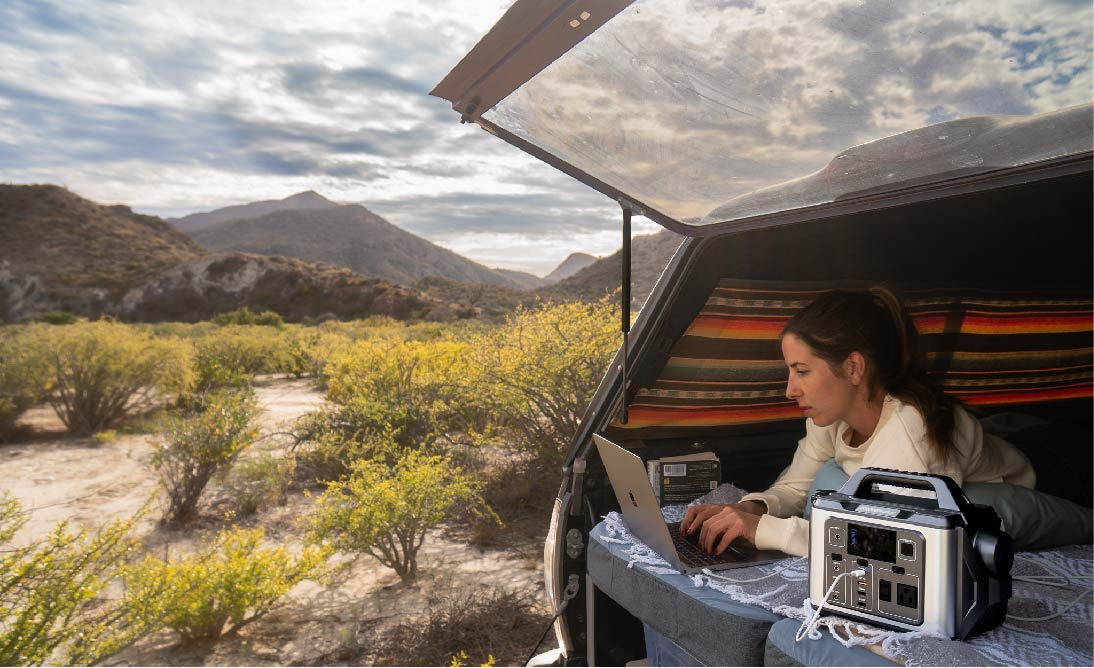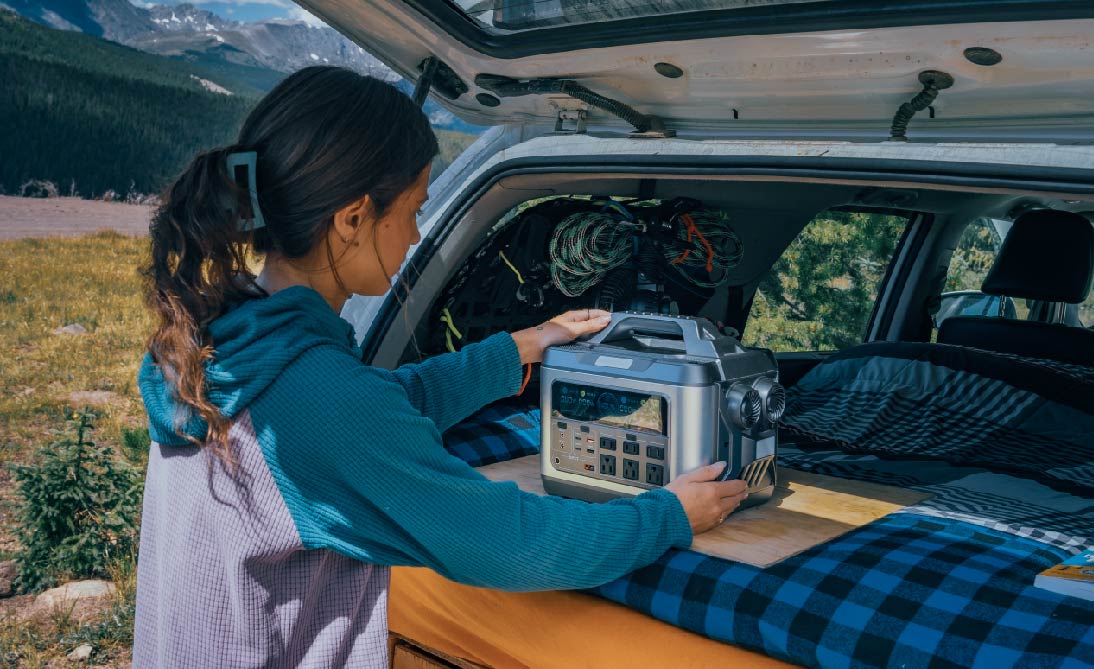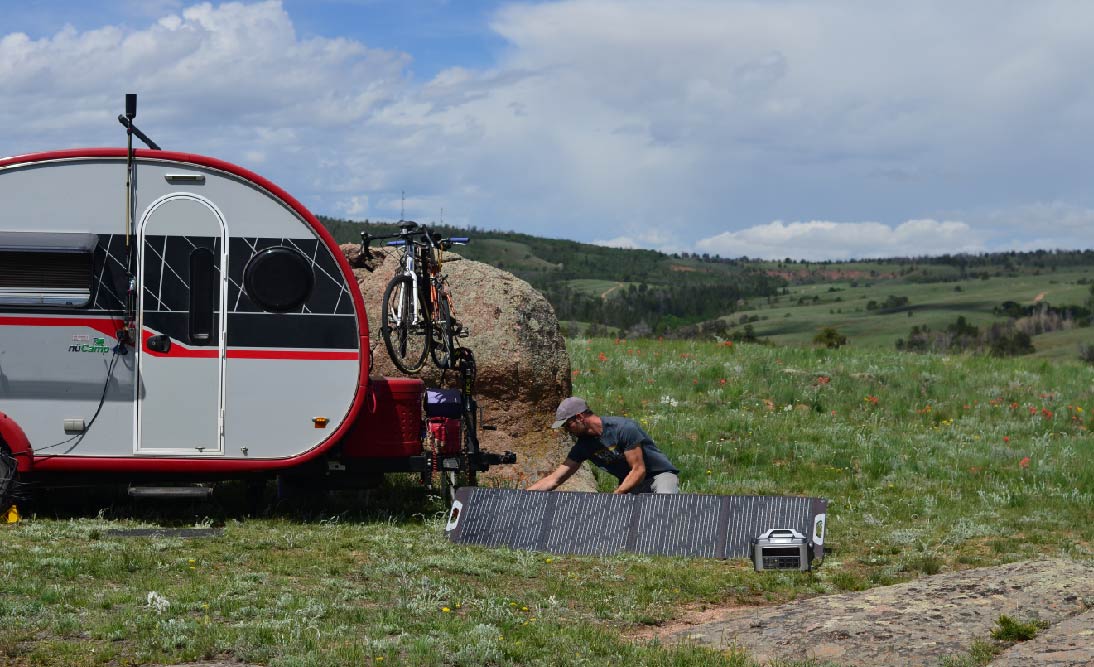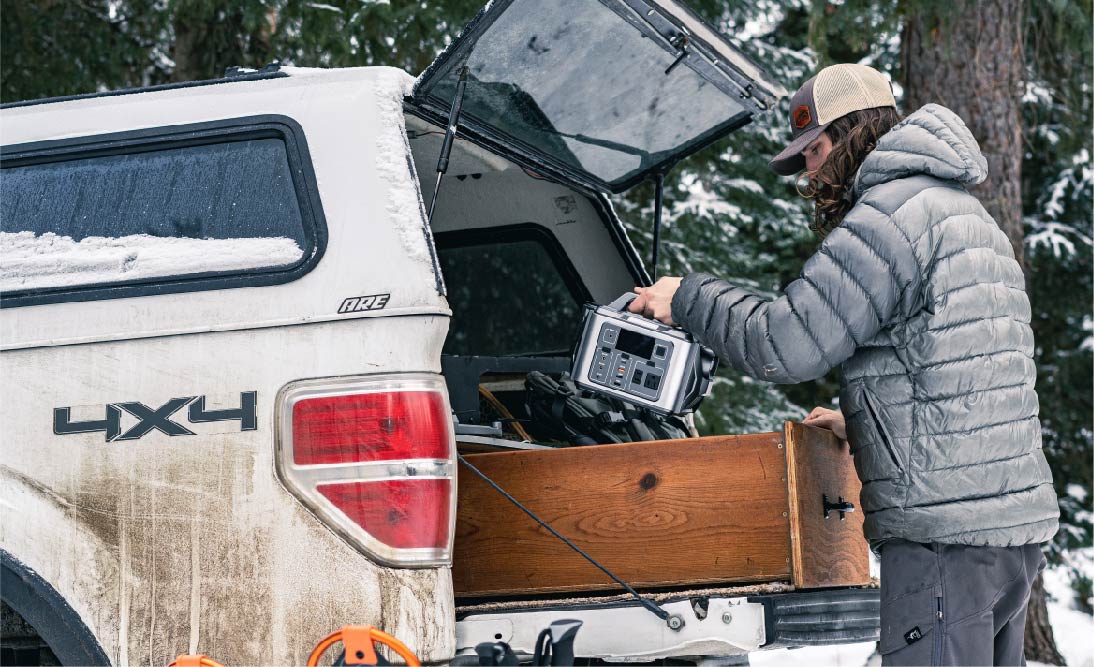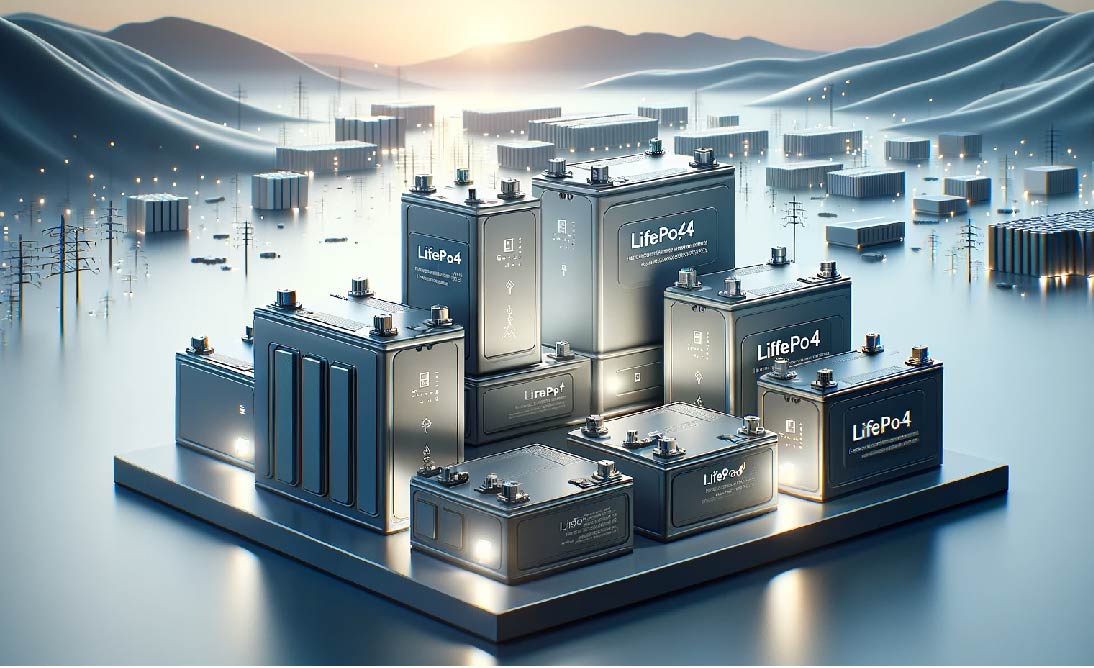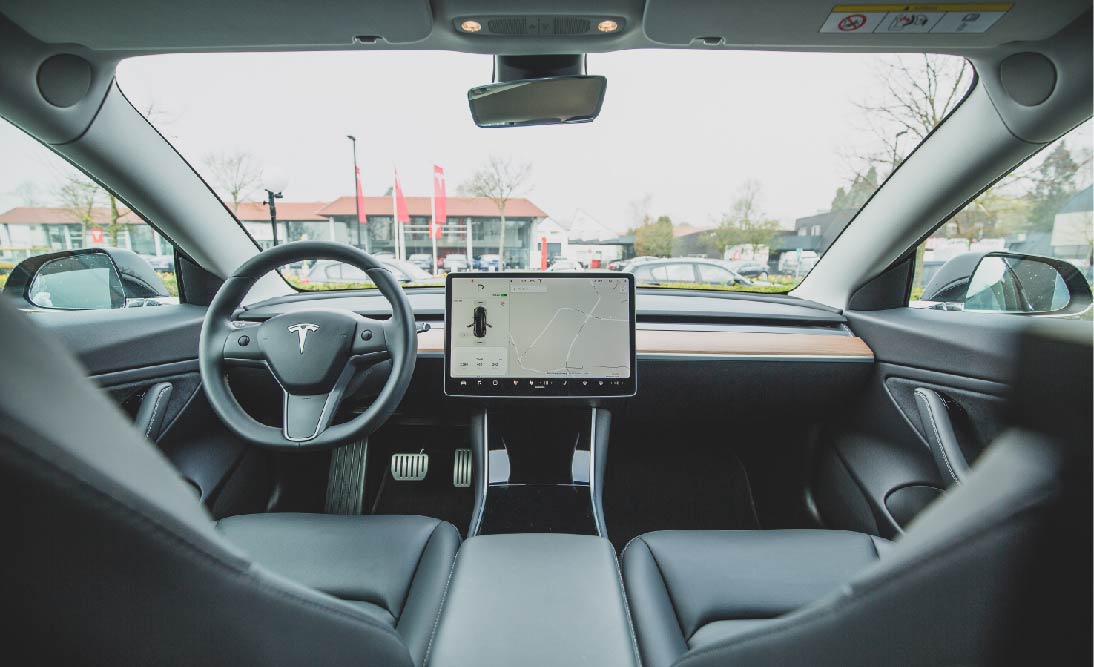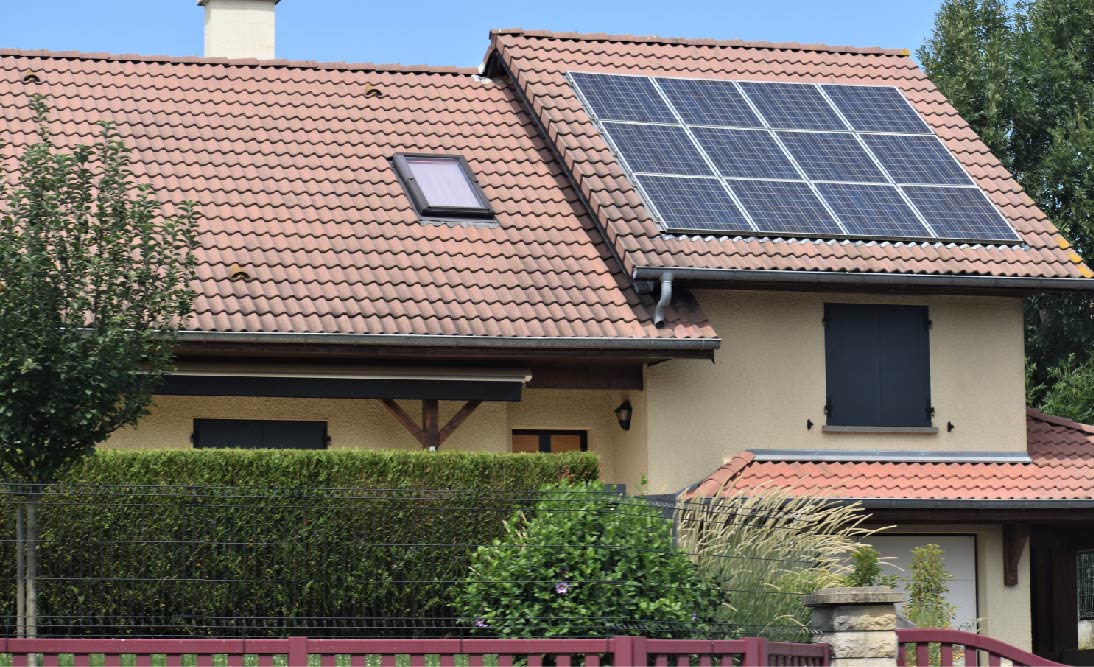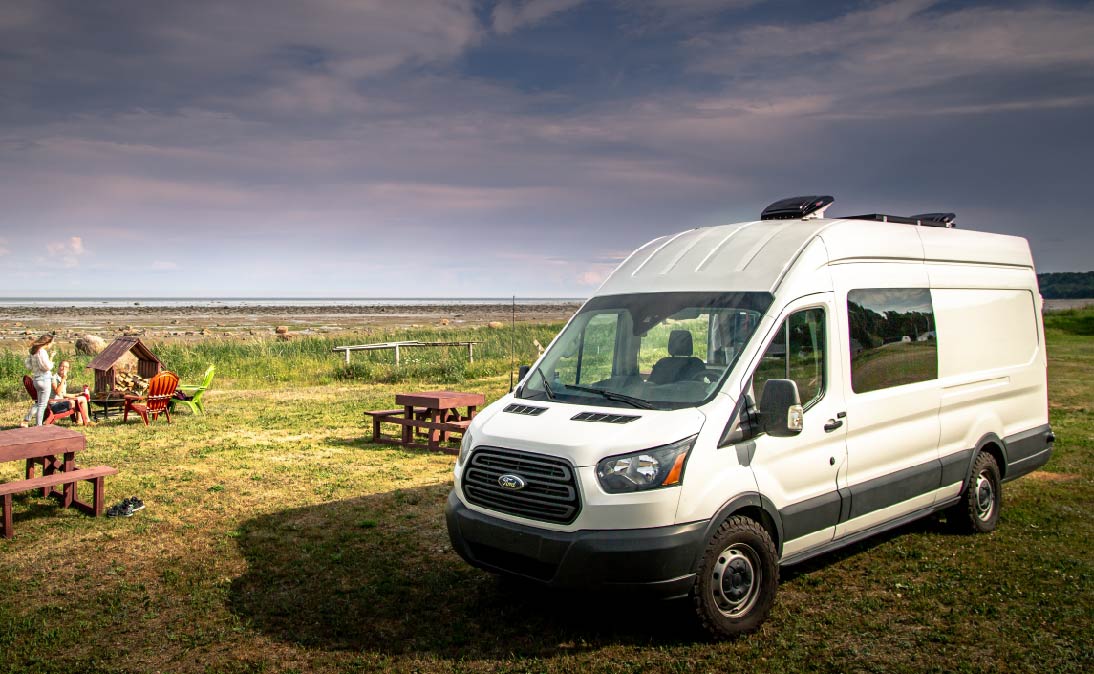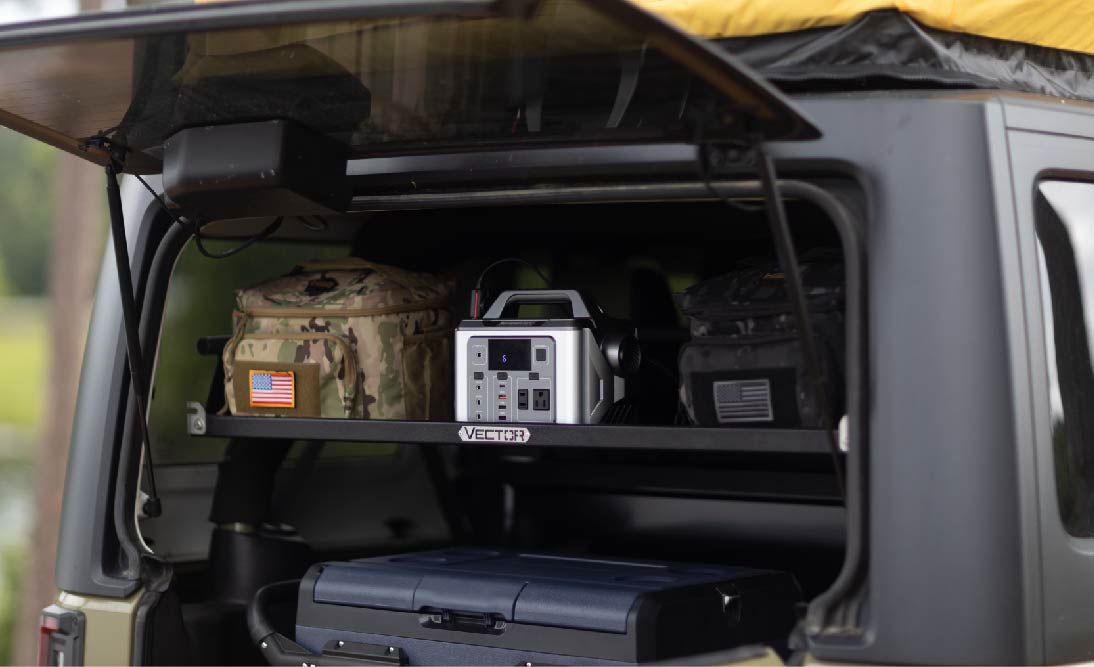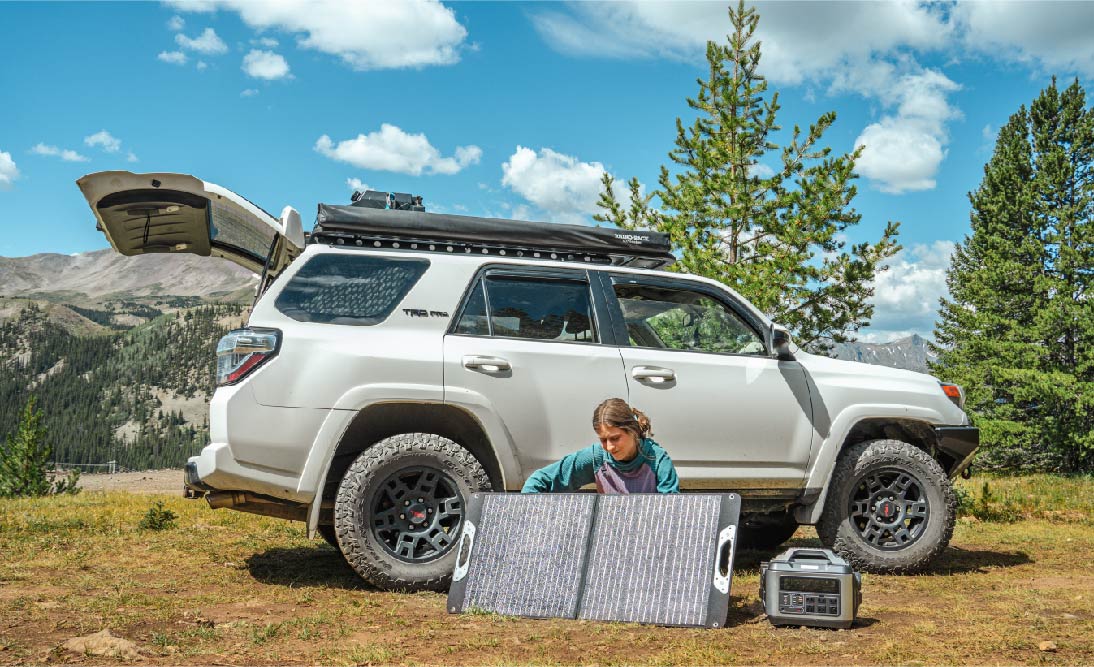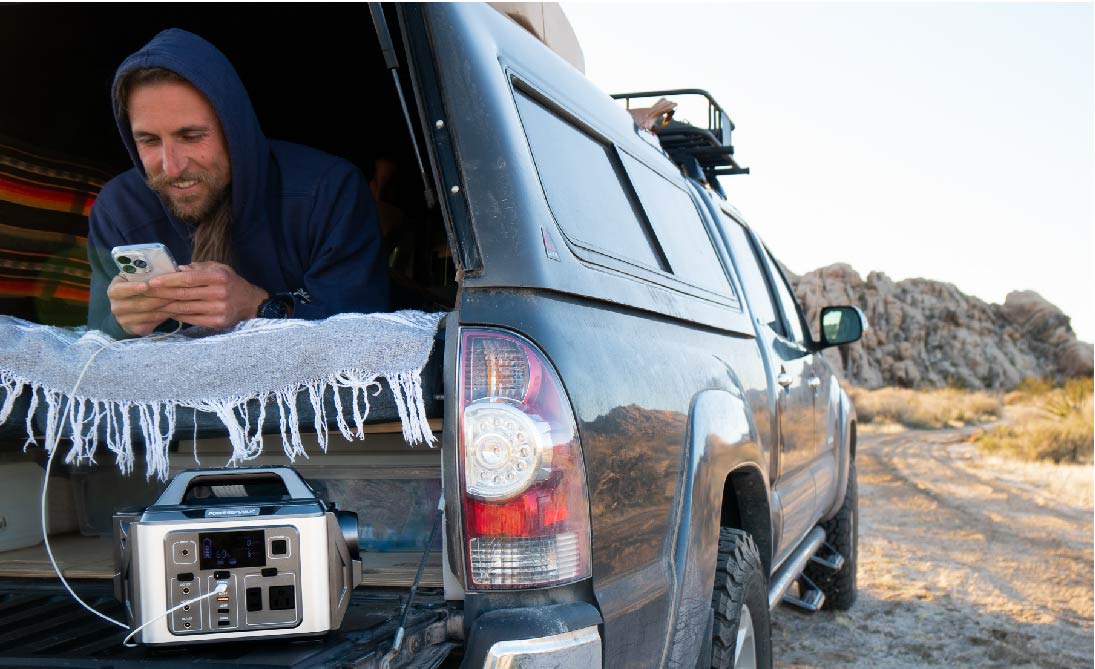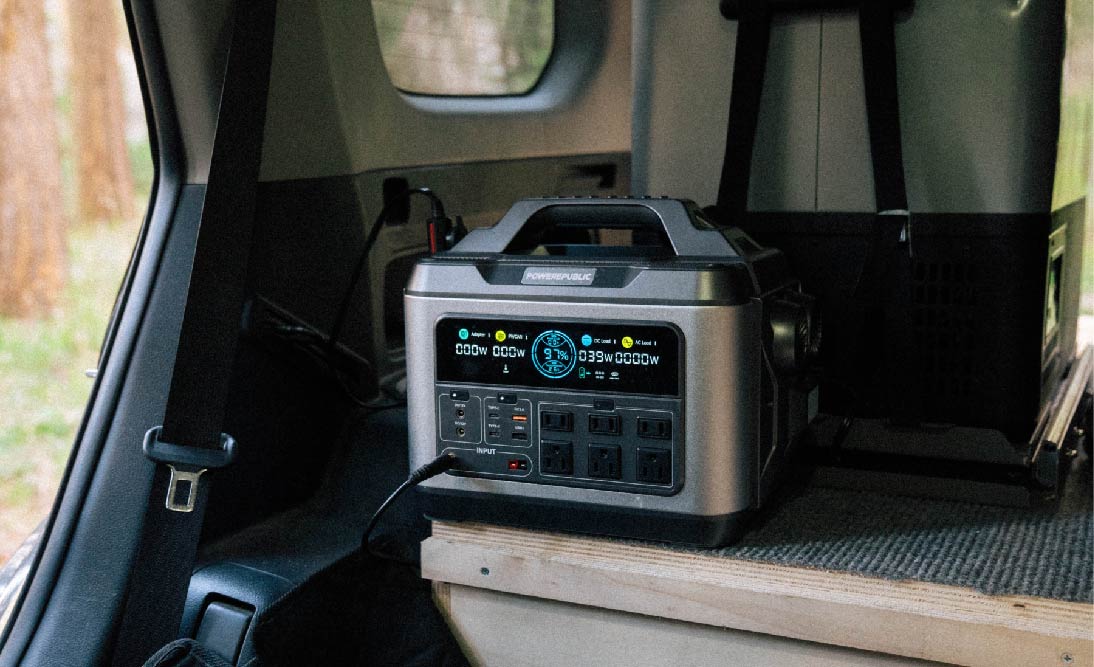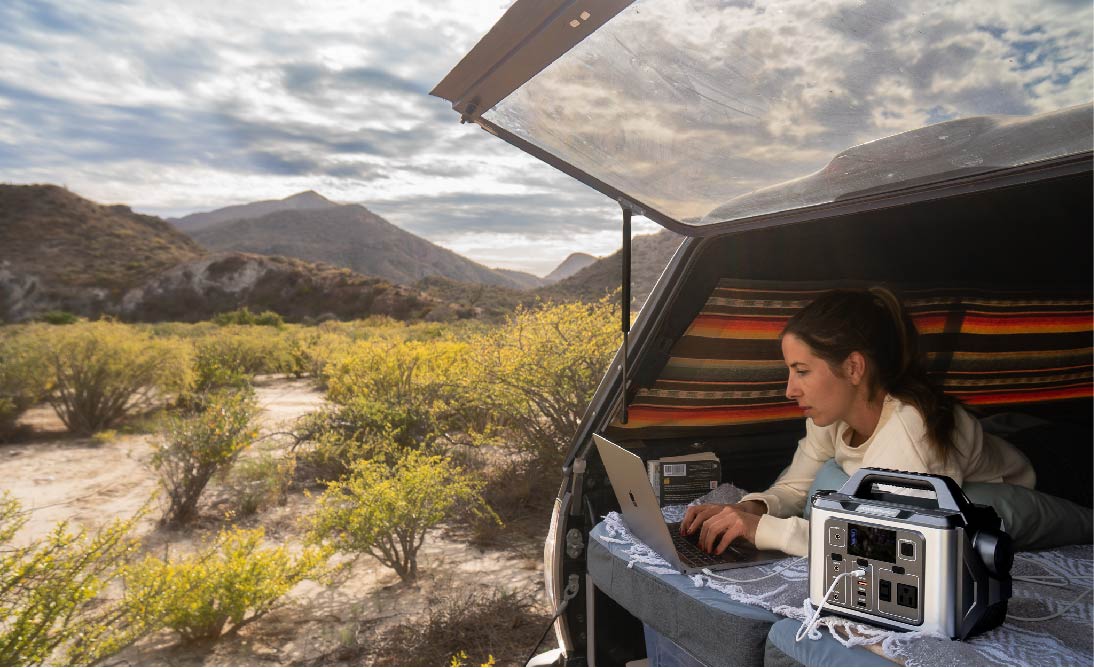Table of Contents:
-
Is It Possible To Use Solar Generators For The Entire House?
-
How To Select the Right-sized Solar Generator For Your Entire House?
-
Pros and Cons of Using Solar Generator To Power the Entire House
As the Earth becomes more and more populated, the demand for emergency power is on the rise. If you live in metropolitan areas, unexpected power outages may seem distant. However, if you reside in rural areas with limited electricity sources or regions prone to extreme weather, power outages occur more frequently and affect your daily life. Thus, having a reliable backup power source such as a UPS(Uninterruptible Power Supply) is essential. It can support you when there's no electricity, keep your appliances running, especially the refrigerator, and help you get through until the power is restored.
In our previous articles, we discussed different types of whole-home battery backups, such as traditional generators, DIY solar generators, and DIY power stations, and whole-home battery systems without solar panels. The solar generator is one of the options that stand out due to its versatility, functionality, and sustainability.
In this article, we will focus on the solar generator for the whole house, how it works, what size solar generator you need, and the pros and cons of a whole-house solar generator.
How Does a Solar Generator Work?

A solar generator, often referred to as a solar power generator or solar generator system, is a device or system that harnesses energy from the sun and converts it into electricity, providing a source of clean and renewable power. Solar generators are versatile and can be used for a variety of applications, including powering homes, RVs, camping equipment, and emergency backup power. If you have a portable power station, you can pair it with a portable solar panel to become a solar generator kit.
The main components of a typical solar generator system include:
-
Solar Panels: These are photovoltaic panels that capture sunlight and convert it into direct current (DC) electricity. Solar panels are made up of multiple solar cells, usually composed of silicon, which generate electricity when exposed to sunlight.
-
Charge Controller: The charge controller is an essential component that regulates the voltage and current produced by the solar panels to ensure that the battery is charged safely and efficiently. It prevents overcharging and over-discharging of the battery.
-
Battery: Solar generators have an energy storage component, typically a lithium-ion or an LFP(LiFePO4)battery, that stores the electricity generated by the solar panels. This stored energy can be used when the sun is not shining, such as at night or during cloudy days.
-
Inverter: The inverter converts the DC electricity stored in the battery into alternating current (AC) electricity, which is the type of electricity used by most household appliances and devices.
-
Power Outlets: Solar generators are equipped with one or more power outlets, such as standard AC outlets, USB ports, and DC outlets. These outlets allow you to connect and power various devices and appliances directly.
How Does a Solar Generator Work?
-
Solar panels capture sunlight: When exposed to sunlight, the solar panels collect photons and convert them into DC electricity through the photovoltaic effect.
-
Energy storage: The generated DC electricity is then directed to the battery, where it is stored for later use. The battery plays a crucial role in providing power when there is no sunlight.
-
Charge controller ensures safety: The charge controller regulates the voltage and current to prevent overcharging and over-discharging of the battery, prolonging its lifespan.
-
Inverter converts DC to AC: When you need to power your appliances, the inverter converts the stored DC electricity into AC electricity, making it compatible with standard household devices.
-
Power your devices: Solar generators typically have power outlets where you can plug in and operate various appliances, gadgets, or tools.
Solar generators are particularly useful for providing clean and renewable power in remote locations, during power outages, and for off-grid living. They are an environmentally friendly and sustainable alternative to traditional generators that rely on fossil fuels.
Is It Possible to Use a Solar Generator To Power the Whole House?

Yes, it is possible to do so, but it all depends on the size of your house or apartment, the type of devices and appliances you want to power, the duration for which you want to power them, and the amount of sunlight you can receive per day. Therefore, it's a bit more complex to arrive at a simple conclusion. Several crucial factors need to be considered.
In general, if power outages typically last only a few hours, a 2000-watt or 3000-watt solar generator like POWEREPUBLIC T2200 and T3000, should suffice to meet your needs. The amount of solar energy generated depends on your location, the availability of sunlight, and the number of solar panels you have.
However, if power outages extend for hours or even days, you will likely need a solar generator with a capacity of at least 5000 watts to function as a Uninterruptible Power Supply (UPS). The size of the solar generator will need to increase by the size of your house, the duration of the power outages, the number of appliances and devices you wish to power, and the length of time you want to keep them powered.
What Size Solar Generator Do I Need To Power a Whole House?

Now, after knowing it is possible to use a solar generator for the whole house, let’s go ahead and talk about some crucial factors that affect how to select the right-sized solar generator for your house.
Know Your Power Needs
-
List Essential Appliances and Devices: Make a comprehensive list of devices you want to power during an outage. Include essential appliances such as refrigerators, lights, computers, HVAC systems, etc.
-
Determine Wattage: Find the wattage of each device. This information is usually provided on the device or in the user manual. If you cannot find it, you can find out the voltage(V) and current(I), and multiply them together to get wattage(W).
-
Calculate Total Wattage: Add up the wattage of all devices you want to power during an outage. For instance, a refrigerator might be around 150 watts, lights (let's say ten LED lights at 10 watts each would be 100 watts), and a laptop at 60 watts would total around 310 watts.
Daily Energy Consumption
-
Assess Household's Energy Usage: Review your monthly electricity bills to determine the average daily kWh (kilowatt-hour) usage. For example, if your household consumes 30 kWh per day, this is your baseline energy requirement.
Sunlight Exposure
-
Find Average Daily Sunlight: Research the average daily sunlight exposure in your location. This information can be obtained from local weather records or solar databases.
-
Calculate Solar Energy Production: Solar panels are rated in watts per square meter. Calculate the expected daily energy production based on your panel's rating.
Solar Panels
-
Panel Efficiency: Determine the efficiency of your solar panels. Efficiency refers to how well a panel converts sunlight into electricity. A standard efficiency rating for residential solar panels might be around 15-23%.
Budget
-
Establish a Budget: Define the budget you're willing to allocate for the solar generator project. Larger systems generally require a more substantial investment. A 2000-watt solar generator or a 3000-watt solar generator will cost you somewhere around $1500 to $3000.
Here's an example calculation based on a typical American household:
Suppose your household's daily energy consumption is 30 kWh, and your total wattage requirement during an outage is 310 watts. Your location receives an average of 5 hours of sunlight per day, and you have solar panels with 20% efficiency.
Daily Solar Energy Production
-
Solar panel wattage needed = 310 watts / 5 hours of sunlight = 62 watts of solar panel capacity required.
Solar Panel Size Calculation
-
Considering 20% efficiency, you'd need approximately 62 watts / 0.2= 310 watts of solar panels to produce 310 watts of usable energy during 5 hours of sunlight.
-
If you want to know more about how to estimate the number of solar panels you need, click HERE.
-
If you want to know more about how to estimate the total wattage of solar panels you need, click HERE.
This calculation suggests that a solar generator with around 310 watts of solar panel capacity would be needed to power essential devices during an outage for this hypothetical American household, under the given conditions.
Keep in mind this is a simplified example. Actual needs might vary, and consulting with a professional solar installer is recommended for a more accurate and tailored solution for your specific situation.
Pros and Cons Of Using Solar Generator To Power The Whole House

Pros of Using a Solar Generator to Power the Whole House:
-
Clean and Renewable Energy: Solar generators harness energy from the sun, a clean and renewable source, reducing greenhouse gas emissions and environmental impact. This contributes to a more sustainable and eco-friendly energy source.
-
Lower Energy Costs: Solar generators can significantly reduce or even eliminate your electricity bills, providing long-term cost savings. As the system generates electricity from sunlight, you rely less on purchasing electricity from traditional utility companies.
-
Energy Independence: Solar power provides a degree of energy independence, especially in remote areas or during grid outages. By generating your electricity, you reduce your reliance on external energy providers and the grid's reliability.
-
Backup Power: Solar generators with battery storage offer reliable backup power during grid failures or outages. This ensures that essential appliances and devices continue to operate, providing security and convenience during such events.
-
Reduced Environmental Impact: Solar energy is environmentally friendly, producing no greenhouse gas emissions and contributing to a cleaner environment. It helps reduce your carbon footprint and minimize air pollution.
-
Incentives and Tax Benefits: Many regions offer incentives, tax credits, and rebates to encourage the installation of solar systems, making them more affordable. These financial incentives can help offset the initial costs of your solar generator.
-
Long-Term Investment: Solar systems are durable and low-maintenance, with long lifespans. They are a sound long-term investment that can provide electricity for decades with minimal upkeep. Additionally, homes with solar installations tend to have higher resale values.
Cons of Using a Solar Generator to Power the Whole House:
-
High Initial Cost: The upfront cost of purchasing and installing a solar generator, especially for a whole house, can be significant. This financial barrier can deter some homeowners, despite the long-term benefits.
-
Intermittent Energy Production: Solar power generation is weather-dependent and varies with daily and seasonal changes in sunlight. Energy production can be limited during cloudy days, at night, or in regions with less sunlight.
-
Space Requirement: A whole-house solar system may require a significant number of solar panels, necessitating ample roof or ground space. Homes with limited space may face challenges in accommodating a sufficiently sized system.
-
Installation Challenges: Installing a solar system may require modifications to your home, such as roof penetrations and electrical work. Some homes may have unsuitable roofs or structural limitations that complicate the installation process.
-
Energy Storage Costs: To have power during the night or on cloudy days, you'll need a battery storage system, adding to the overall cost of the solar installation. Batteries have limited lifespans and may require maintenance or replacement.
-
System Complexity: Solar systems can be complex, involving multiple components like inverters, charge controllers, and wiring. This complexity might be intimidating for some homeowners and necessitates professional installation.
-
System Lifespan: While solar panels have long lifespans (typically 25 years or more), other components, such as batteries and inverters, may need replacement sooner. Planning for the replacement or maintenance of these components is essential.
-
Local Regulations: Local regulations and permitting requirements can add complexity and cost to the solar installation process. Compliance with these regulations is necessary but may require additional time and effort during the installation phase.
It's important to note that the pros and cons can vary depending on your specific situation, location, and energy needs. When considering a whole-house solar generator, it's advisable to consult with a professional solar installer who can assess your needs and provide guidance on the best approach for your home.
Final Thoughts
In conclusion, the rising demand for emergency power in an increasingly populated world has underscored the importance of reliable backup energy sources, particularly for those in areas prone to power outages. Solar generators, driven by clean and renewable energy from the sun, offer a promising solution for powering entire households. They provide numerous advantages, including reduced energy costs, environmental benefits, and energy independence. Moreover, solar generators with battery storage ensure uninterrupted power during grid failures, enhancing convenience and security.
However, the decision to employ a whole-house solar generator should consider factors like high initial costs, intermittent energy production due to weather dependence, and space requirements. Installation complexity, energy storage costs, and adherence to local regulations can pose additional challenges. Each case is unique, and the choice of a solar generator should align with specific energy needs, location, and budget.
For a tailored solution, consulting with a professional solar installer is recommended, as they can provide expert guidance and customize a whole-house solar generator system that meets your requirements. Ultimately, solar generators stand as a sustainable and viable option for those seeking reliable, clean, and renewable power for their entire homes.
Explore POWEREPUBLIC Solar Generator Kits.
